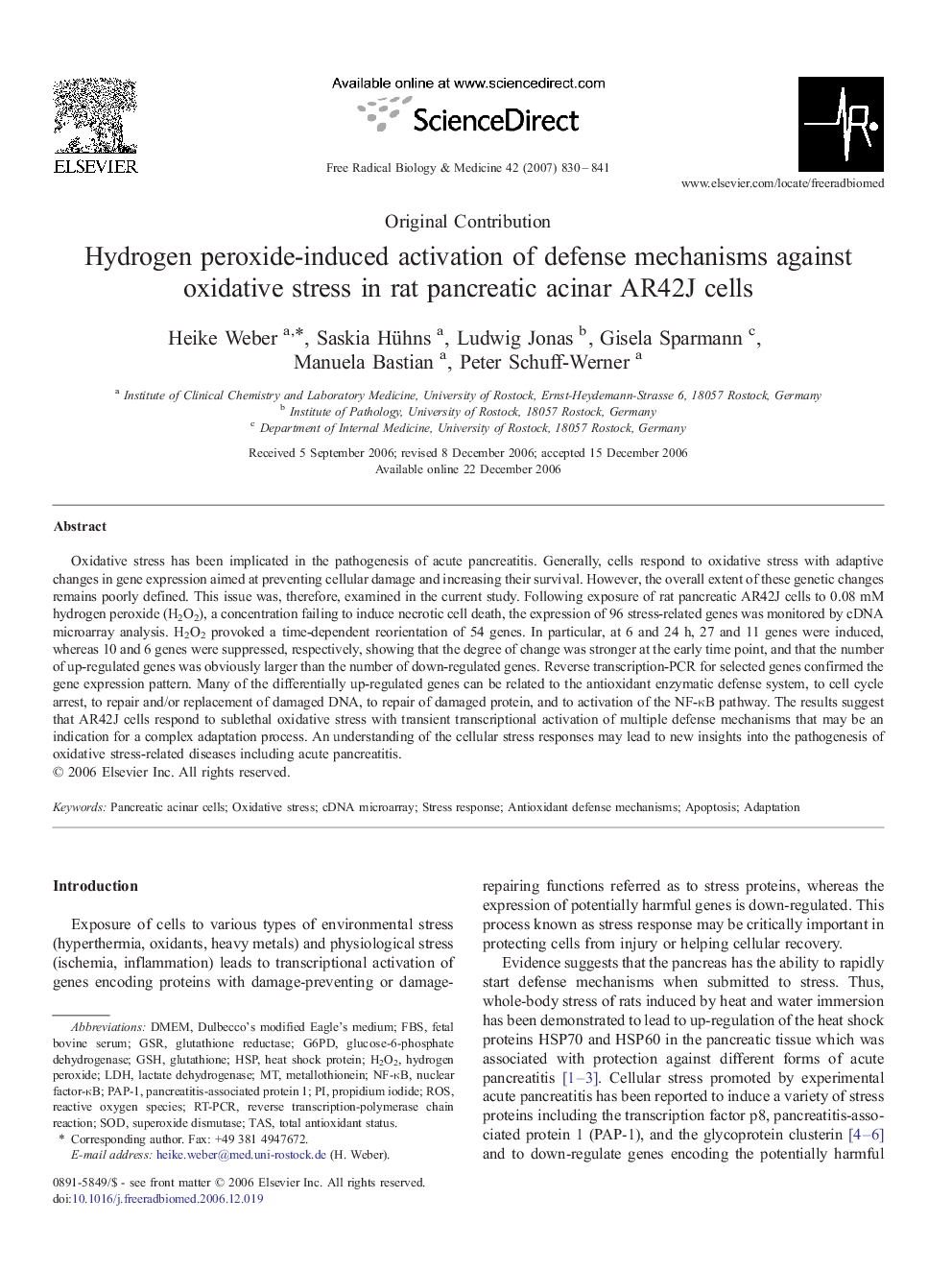| Article ID | Journal | Published Year | Pages | File Type |
|---|---|---|---|---|
| 1910614 | Free Radical Biology and Medicine | 2007 | 12 Pages |
Oxidative stress has been implicated in the pathogenesis of acute pancreatitis. Generally, cells respond to oxidative stress with adaptive changes in gene expression aimed at preventing cellular damage and increasing their survival. However, the overall extent of these genetic changes remains poorly defined. This issue was, therefore, examined in the current study. Following exposure of rat pancreatic AR42J cells to 0.08 mM hydrogen peroxide (H2O2), a concentration failing to induce necrotic cell death, the expression of 96 stress-related genes was monitored by cDNA microarray analysis. H2O2 provoked a time-dependent reorientation of 54 genes. In particular, at 6 and 24 h, 27 and 11 genes were induced, whereas 10 and 6 genes were suppressed, respectively, showing that the degree of change was stronger at the early time point, and that the number of up-regulated genes was obviously larger than the number of down-regulated genes. Reverse transcription-PCR for selected genes confirmed the gene expression pattern. Many of the differentially up-regulated genes can be related to the antioxidant enzymatic defense system, to cell cycle arrest, to repair and/or replacement of damaged DNA, to repair of damaged protein, and to activation of the NF-κB pathway. The results suggest that AR42J cells respond to sublethal oxidative stress with transient transcriptional activation of multiple defense mechanisms that may be an indication for a complex adaptation process. An understanding of the cellular stress responses may lead to new insights into the pathogenesis of oxidative stress-related diseases including acute pancreatitis.
